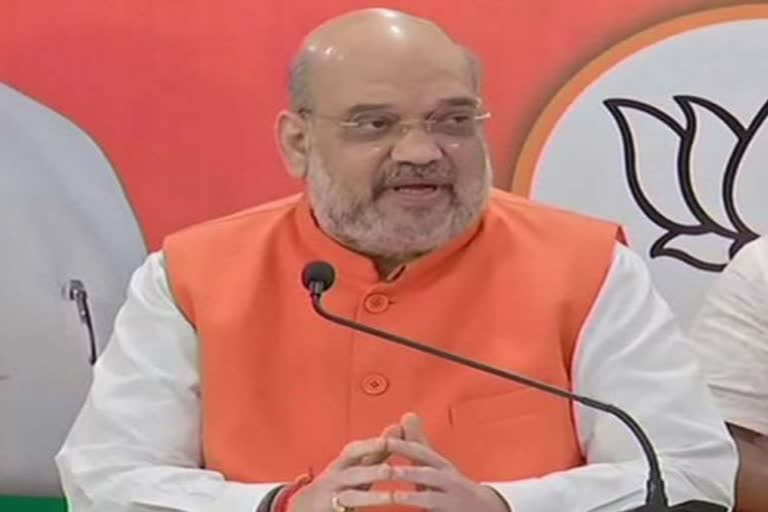Bengaluru: Union Home Minister Amit Shah on Saturday lauded the Indo-Tibet Border Police (ITBP), calling them 'Himaveer' (snow bravehearts) and said no one can encroach even an inch of our land when they are there at the borders. Hailing the ITBP personnel, he said they guard our borders in harsh conditions and that the title of 'Himaveer' for them is bigger than Padma Sri and Padma Vibhushan.
"We cannot even imagine how they guard our borders in minus 42 degree Celsius temperature. This can happen only with a strong willpower and supreme degree of patriotism. The ITBP works in the odd geographical conditions in Arunachal Pradesh, Ladakh or Jammu and Kashmir," Shah said after inaugurating the Central Detective Training Institute of the ITBP here.
"People of India call the ITBP soldiers as 'Himaveer.' This title is bigger than the Padma Sri and Padma Vibhushan civilian awards. While the civilian awards are the government title, 'Himaveer' is the title given by the people of India, Shah told the gathering.
Among all the central armed police forces, the ITPB works in the most odd weather conditions, he pointed out. "I am always assured and never worry at all about the Indo-China border when our ITBP soldiers are patrolling or camping because no one there can encroach even an inch of our land," the Home Minister said.
He also said the Government of India is planning to provide 100 days for the Central Armed Police Force (CAPF) personnel to spend time with their family at their headquarters. "This is necessary from a human point of view," Shah added. The Home Minister also told the gathering that ever since Prime Minister Narendra Modi-led Bharatiya Janata Party government came to power at the Centre it improved the housing and health facilities of the CAPF.
Speaking about the importance of research, he said police becomes irrelevant when it stops thinking about the changes happening in the society and reforms itself accordingly. "The Bureau of Police Research and Development (BPR&D) is an institution which gives a big strength to the police but unfortunately, it did not get the attention it deserved. Also, it did not receive the recognition it should have got," Shah said.
"Our society has the tendency of continuous change. In 25 to 50 years, the thinking, the shape, the goals and the path of the society change. When the police stop thinking of this change, then it becomes irrelevant. If you want to understand and feel this change, and modify with the change then research is very essential," the Home Minister said.
He also underlined systemic and systematic reform should be a continuous process and hence it is important to draw strategies based on the research work. He pointed out that the responsibility to carry out research work on behalf of the entire police of the country and the Central Armed Police Forces lies on BPR&D. Cooperation between the institutions, organising seminars, learning from best practices and challenges, make the police relevant, Shah said.
The Home Minister emphasised upon coordination between police of different states in India where the Law and Order is a state subject. In India, coordination and cooperation is necessary because law and order is a state subject with cultural diversity. However, criminals too have cultural diversity because they too are part of the culture, and pose different kinds of challenges, Shah said.
It is a good decision to make law and order a state subject. But as time passed the country faced the challenge of narcotics, fake currency, money laundering, outfits causing disturbance in the society, terrorism, infiltration in the border states and problems faced in the coastal region, he explained. "If you have to bring coordination between the police of different states, then it can be done by the BPR&D through dialogue, seminars, and cooperation. Unless there is dialogue and cooperation we cannot face these challenges," Shah said.
He cautioned police officers saying policing will be challenging in the coming days in metropolitan cities because of the presence of people from different states. "We will not be able to protect our metropolitan cities if we do not focus on research and change our strategy according to the outcome of the research," the Home Minister said. (PTI)
